Get the Chance is a strong supporter of Welsh/Wales based Playwrights. Wales as a nation does not have a literary department to support Playwrights. When we found out about the exciting Playwright module from lecturer Viv Goodman on the Extended Diploma in Performing Arts course at Coleg Gwent we got in touch to find out more this new initiative.
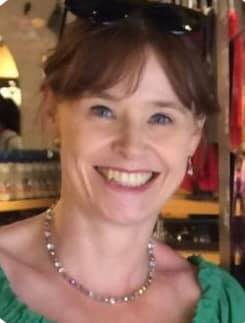
Hi Viv, great to meet you, what got you involved in the arts and education?
I loved Drama in school from a very young age and it was always going to be something I would pursue further. About the time I was in sixth form in Cardiff I decided I wanted to teach Drama; I had gained so much from my own teachers and through provision such as The Sherman Theatre Youth Project. I did the Secondary Drama teaching degree that was run between what is now Cardiff Met and RWCMD, then went straight into working in secondary schools. I’ve been at Coleg Gwent for 12 years now; moving to FE was the best thing for me, I have really loved working on a vocational course with the students.
You are about to embark on an exciting new project with a range of writers, please tell us more!
Certainly, my year two actors are on the Extended Diploma in Performing Arts course at Coleg Gwent. The project is an assignment for two units, Performance Workshop and Exploring Theatre Practitioners.
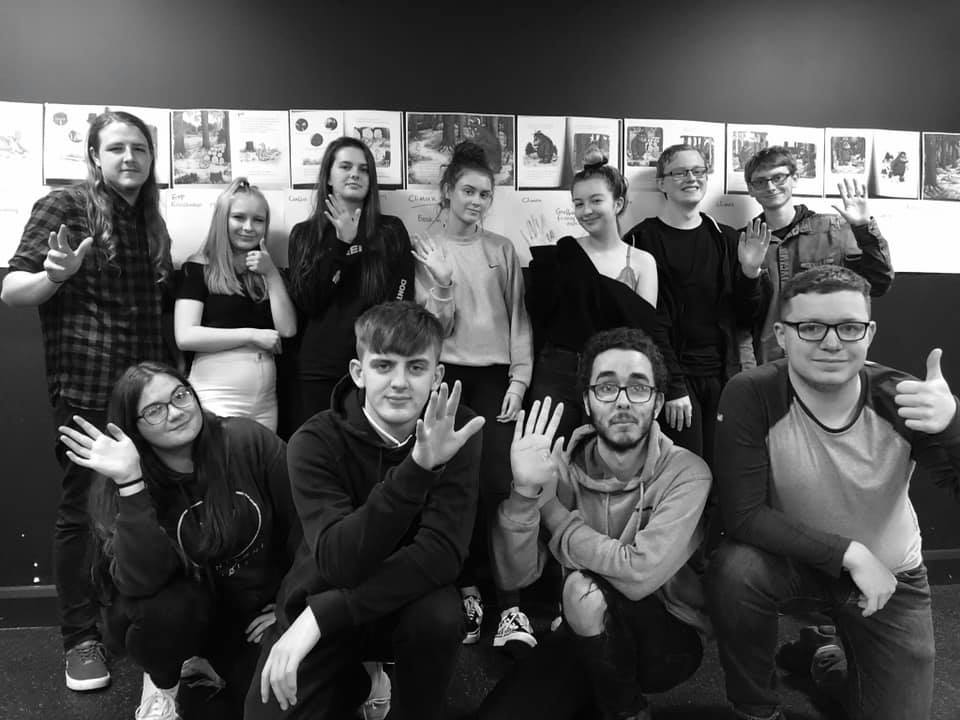
We start on 24th Oct when we go to see Pavilion, Emily White the productions writer will be coming to us the following day to do a workshop about the play. I anticipate that some of the students will select an extract to rehearse for performance. Owen Thomas will be able to join us for several workshops during November, we will be exploring extracts from his work Grav, An Orange in the Subway, Richard Parker and The Night Porter. The pieces will all be performed on 11th/12th December at Coleg Gwent and will be delivered as a promenade theatre experience, touring the audience between different locations that create the right mood/atmosphere for each play. Jeremy Hylton Davies will also join us in November, he will be taking a workshop on TV and radio acting/writing and sharing some of his BBC scripts with the students.
Why do you think its important for your students to engage with living playwrights?
I really want the acting students to have interaction with performing arts professionals, it’s something I am currently trying to develop for the Level 3 Year 2 Acting course. Working with these three playwrights will give students the opportunity to understand a bit more about the writing process, but mostly I think it will make the scripts and professional world seem more real somehow; I’m sure that very often a playwright or an author can appear simply as a name on a book and this project will allow them to talk to real people and work with them to bring their concepts, themes and characters to life.
What has been the response from the writers as regards getting involved in the project?
I am genuinely bowled over and delighted by their response to the project! All three playwrights came my way during August while I was considering materials and projects for the new academic year. I knew I wanted to do something contemporary with the Year 2 group during the first term before they go on to a classical/historical project, but I couldn’t decide on a play. I was in touch with Emily first and got swept up in the excitement for Pavilion! I knew that she wanted the play to reach a younger audience and I felt that the students would connect with this. She was thrilled to learn that we were coming to see it at the Riverfront and was really happy to come and see us for a workshop. I then got in touch with Owen, having also read his Get the Chance interview and learned a good deal more about his work.
I was really interested to know more about The Night Porter as we had done a ghost storytelling project at Coleg Gwent a couple of years previously. He was also very positive about coming in to share his work with us and it was at this point that the idea of making it into a project occurred to me. I asked to meet Owen, he was involved with the Edinburgh Festival, taking West to NAFoW and then a research and development week on An Orange in the Subway, so by the time we finally managed to catch up I had about 50,000 questions for him… but I managed to rein myself in and keep to the matter in hand! He was very enthusiastic and supportive. I was also delighted to hear back from Jeremy; his writing across the fields of theatre, BBC TV and Radio Drama really interested me and he will be invaluable to our students. He has local connections as well, so it’s great that he is able to come and work with us. Everyone has been incredibly kind.
If you were able to fund an area of the arts in Wales what would this be and why?
I would love to see more funding for youth drama projects. Early opportunities and building self- confidence, self-esteem and a sense of belonging to something are essential to well being and growth; during my time as a secondary school teacher in particular I noticed that the pupils involved with Drama, Music and Sport were usually the most content and fulfilled learners.
What was the last really great play that you experienced that you would like to share with our readers?
I loved On Bear Ridge at the Sherman Theatre, incredible writing and performances. A number of people have commented on how great it was to see the auditorium full for a new play. I’m glad Jeremy will get a chance to see it at The Royal Court!
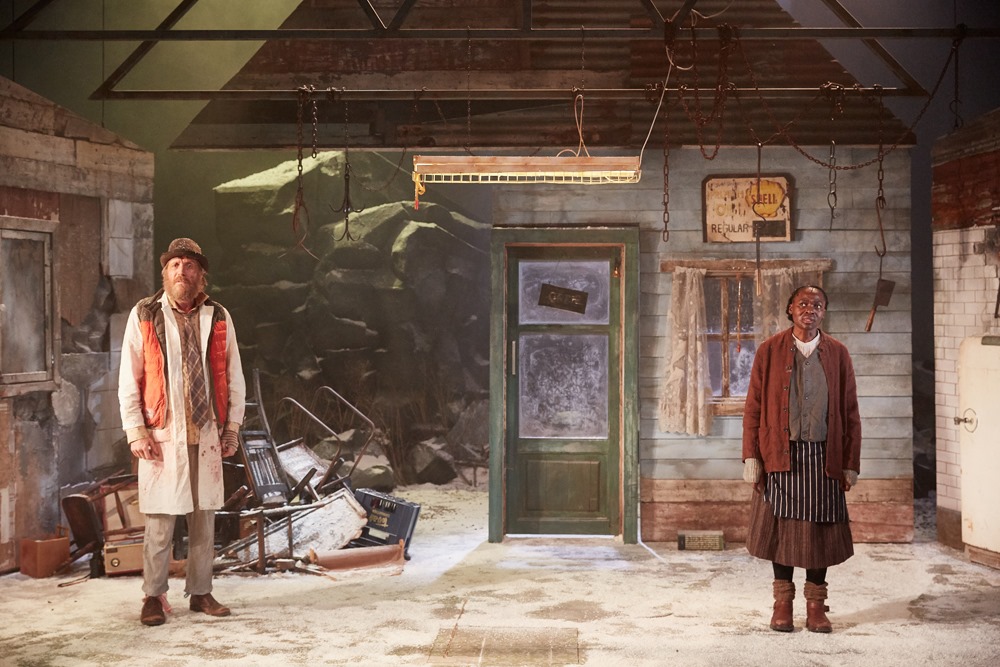

Playwright Owen Thomas tells us more about why he got involved in this new initiative.
When Viv first approached me about working with her students, I accepted immediately. As well as writing plays, I have taught Drama for almost 20 years and I have always thought it essential in their development that young people have the experience of working with people making their living and working in the arts. It is vital that people who have experience of making work are able to interact with the next generation. If there is anything that I have learnt in my writing career then I would be glad to share it, be they tips for how to be successful or some of the many mistakes I’ve learnt from.
You will be running workshops during November, where the students will be exploring extracts from your plays Grav, An Orange in the Subway, Richard Parker and The Night Porter. How will you approach this process and what do you hope the students will gain from studying your work?
With a play like ‘Grav, it has only ever been performed by the brilliant Gareth John Bale. I am excited to see how a younger performer will approach it. I would certainly encourage them to be bold and to give it their own unique stamp. ‘Grav’ and ‘Richard Parker’ are the two plays of mine closest to my heart in terms of the doors they opened and the people they introduced me to. ‘Richard Parker’ has been performed by a range of companies over the years, and I am often struck by how different people interpret the play. I have seen it played as an out and out comedy, or as a more darkly sinister piece.
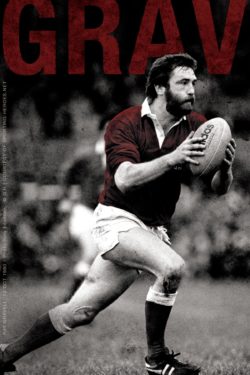
‘An Orange in the Subway’ and ‘The Night Porter’, are new plays of mine, and for my own development I am interested to see how these young performers interpret them. Having had the pleasure of doing research and development on both of these plays in the last 12 months I am always excited to learn new things from actors and directors who always come at projects with their own unique viewpoints. It is great to think that a group of talented performers will be spending time with my words and creating a kind of retrospective. I am sure it will make me feel old. I am excited to see what they do. Above all, I hope they enjoy the project and I am looking forward to meeting them.
Do you feel the role of the Playwright is sufficiently understood by those studying drama?
Overall, yes, but a lot depends on how they are taught. One of the good things about GCSE, AS and A Level Drama is that young people are encouraged to study plays. The earlier this can happen in school, the better. Often young people are initially attracted to study drama by the urge to perform. It is important that they learn about the ground breaking writers and directors as well as actors. I have worked with young people who have been inspired to give playwriting a go after studying Playwrights such as Arthur Miller, Shelagh Delaney or Roy Williams. Without the Playwright, there is no play.
What one piece of advice could you share with any aspiring Playwright?
When you are starting out as a Playwright there is nothing more valuable than seeing and hearing your work being performed. With my first play, ‘The Dead of Night’, I roped in various friends and called in favours to help me to stage it. I learnt a huge amount from this process. How what looks good on the page doesn’t always translate into the mouths of the performers, or the fact that what a writer might spend two pages wrestling to communicate, a good actor can communicate with a single look. One of the things that first attracted me to being a Playwright is that, if you have the passion and the time, all you need to stage a play is a script, willing performers and a space. Don’t sit and wait for a theatre to approach you. Get out there and make new work. Trial and error. It is the best way to learn.
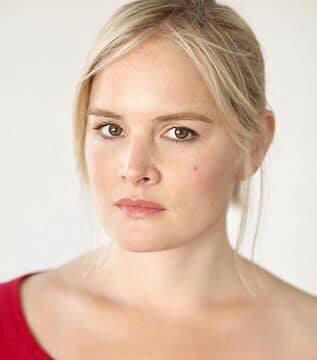
Playwright Emily White tells us more about why she got involved in the new exciting initiative.
I am really passionate about getting more young people coming to the theatre, so I had already agreed to lead some workshops while Pavilion was running at Theatr Clwyd as part of their engagement program, in order to try and encourage some of their younger groups to come and see the show. So when Viv from the Extended Diploma in Performing Arts course at Coleg Gwent reached out to me on Twitter and said she was bringing her students to see Pavilion and would I consider meeting with them I was totally up for it. I’m new to running workshops but I think it’s good to push yourself out of your comfort zone sometimes, theatre and dance meant everything to me when I was young if I hadn’t found that calling I’m not sure what I would have done. I was really lucky to have the opportunities I did, so I want to give something back.
The students will be going to see your play Pavilion at The Riverfront Theatre in Newport. You are then going to run a workshop with the students. How will you approach this process and what do you hope the students will gain from studying your work?
I really feel this play in particular is exciting for young people to watch because there a large number of young characters that they can identify with, it takes place at a bar/nightclub so it’s fun but it also addresses harder hitting issues that they are facing. Out of all the feedback we’ve received about the show, my favourite comment was that one of our techies brought his 16 year old son to see it, and he loved it so much he went and bought himself and his girlfriend tickets with his own money so he could see it again. I was really happy to hear that it spoke to him so strongly. We’ve also had students from Wrexham come along to the show and some members from my old youth theatre MPYT (Mid Powys Youth Theatre) and they have all responded positively to it and wanted to study or perform it, so hopefully the Newport students will feel the same. Viv and I have talked about a Q&A session and then some work on particular scenes. I think these workshops will be primarily about performing whereas the ones I lead at Clwyd were writing exercises on developing character. Although some of those exercises could apply to performers as well in terms of creating a backstory for your character that goes beyond the information given to you in the text. For example asking the students to list twenty things a character remembers, twenty things they want etc. to help to build a more complex inner world.
Do you feel the role of the Playwright is sufficiently understood by those studying drama?
In a word: no. At least I didn’t fully understand it – I did a BTEC in Performing Arts at Hereford and we did a bit of devising/writing and at RADA we did a little writing but mostly of monologues as a way into characters but I didn’t really start to understand playwriting until I tried to write a play. Only once you try, and get feedback, and then redraft and redraft and redraft, can you start to understand how much work goes into writing a play. Acting is in a walk in the park compared to writing as far as I’m concerned. Even with all the theatrical experience I had as an actor and having read loads of plays (I love reading plays so I buy them more than I buy other books) I didn’t have any idea about how a play is structured. Characters reveal themselves to me quickly but structure and plot I find much more difficult. I had no idea how much editing and rewriting went into playwriting.
I’ve never worked on a play with a living playwright so I had no idea what to expect going into the rehearsal process for Pavilion in terms of what would be expected of me and I’m not sure any of the actors did either. We were still rewriting bits and adding lines or editing lines out, right up until press night. Plays can take years to write and then years to get on – Pavilion started four years ago and then right at the end of the process it becomes a collaboration – so I was on my own for years and then for the last few months I’ve had all these other collaborators come in: literary advisors, producers, directors, movement directors, fight directors, designers, sound designers and of course a company of actors and suddenly it’s not yours anymore it becomes a company effort: everyone is there working really hard to make your imagination come to life which is overwhelmingly moving. It’s also strange and exciting and frightening too because you have no control anymore. And of course if Pavilion ever receives another full production it would be completely different again, with a different set of people involved, creating a entirely different show. That’s one of the unique things about plays as opposed to other art forms, it’s never finished, it gets recreated and re-imagined every time… and I’ll probably still be doing rewrites.
What one piece of advice could you share with any aspiring Playwright?
Get some friends together (actors if at all possible) and get them to read your play out loud and then have a discussion about it afterwards. It is a short cut to knowing what works, what nearly works and what will never work. You’ll hear what bits are heavy handed and overwritten, you can make notes as you go along and then you can redraft. This is really helpful even in the very early stages of writing a play and may spark ideas that will help you create new scenes or even new characters.
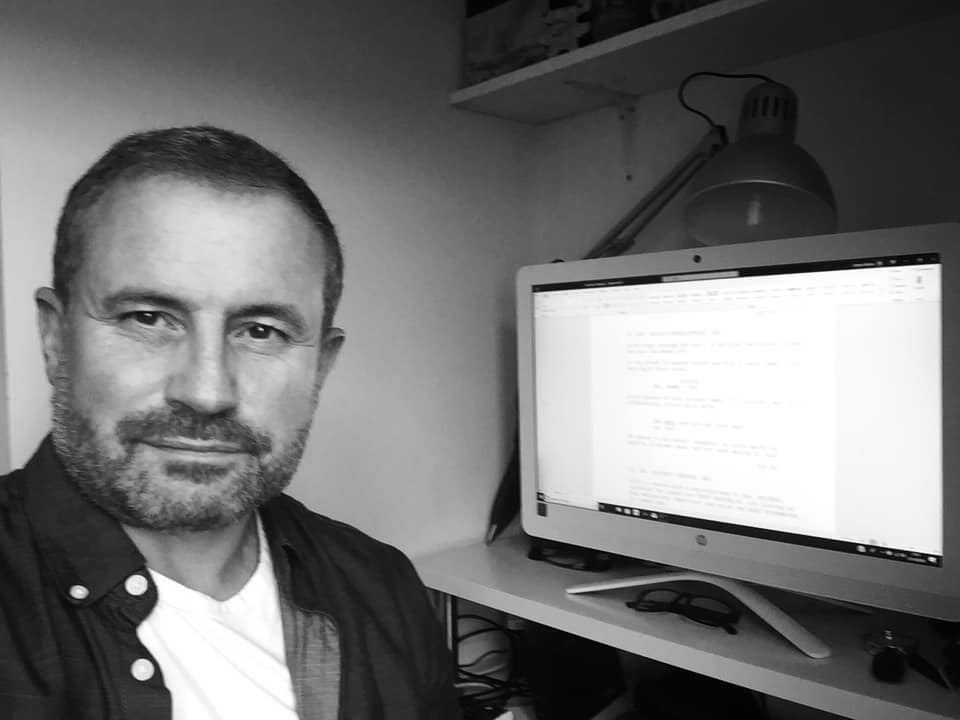
Writer Jeremy Hylton Davies us more about why he got involved in the new exciting initiative.
I think Viv and I bumped into each other online and she found out that I come not so very far from Crosskeys originally and I do often write Welsh themes or use Welsh characters, including in network drama. Viv asked me if I could help out and I was only too pleased to. I think looking at the world of professional theatre and film and TV, it can seem like it’s made by a select club which is difficult to join. I would think all of the professionals involved would say that they want to demonstrate that that’s not the case and you just need the urge and the will to get involved and make it your working life, if you want to.
How will you approach this process and what do you hope the students will gain from studying your work?
Well, by happy coincidence some of my work has just been broadcast on tv and radio and the students will be able to compare the scripts with the transmitted versions. There can be many changes along the way, not least due to demands of budget and schedule (anyone who works in drama or television will tell you all about those!), but reading the scripts also gives a good insight into how to write to the technical demands of a particular medium and how these demands differ, ie with regard to tv and radio. In radio you can say ‘Here we are on Mars’ and the audience is instantly with you on Mars. In tv or film, if the story is set on Mars, it’s pretty much got to look like Mars. And recreating Mars is expensive!
Do you feel the role of the Playwright is sufficiently understood by those studying drama?
If you say ‘writer’, then it’s a broader question. In theatre the writer is paramount (unless they don’t want a writer at all!), but in film and especially in television, you are part of an enterprise that is dictated by schedules and money, as above, ditto technical demands, but also deadlines, deadlines, deadlines, especially in continuing (serial) drama. There’s a cast, crew and back office production team of about 80 waiting for your script to land – so you’d better land it.
In a historical context, playwrights and writers are also subject to social and political forces of their times. So getting the work staged and finding an audience are difficulties in themselves. A novel you can write in isolation, a play needs an audience if it is to come off the page.
The role of the playwright is tied with the role of the theatre. We live in times when journalism, or at least fewer journalists, are really holding power to account. And when opinions are supposed to be binary, my view vs. the other view. What’s missing is the examination of the degrees of experience and the fact that humans are complex and contradictory beings. Theatre and drama can do that.
But, really, the role of the playwright has been debated since Aristotle – and probably before him! So maybe that the question needs to be constantly asked is an indication that the role of the playwright is actually alive and well and continues on.
What one piece of advice could you share with any aspiring Playwright?
Watch all you can, see and hear all you can. Be curious. Don’t be scared. Write what you want to write. But write. Always write.


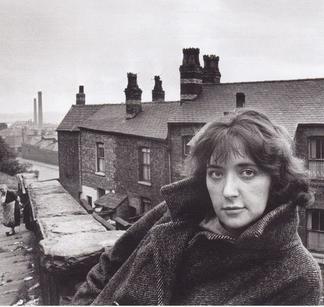
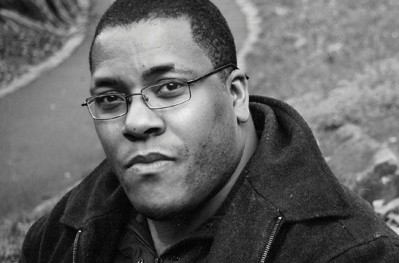
One thought on “Working with Welsh Playwrights at Coleg Gwent”
-
Pingback: "Early embedding of the arts is crucial to them being seen as viable career options." Viv Goodman on the the decline in Drama at A Level. - Get The Chance
Get The Chance has a firm but friendly comments policy.